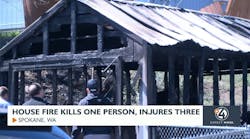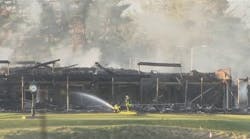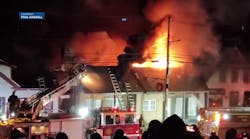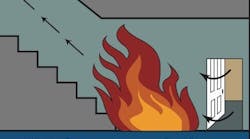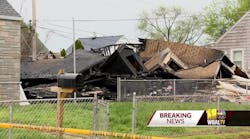Agriculture Undersecretary Mark Rey said two P2V tankers, owned by companies in Montana and Nevada, will be outfitted with special equipment to monitor how much stress the planes experience during firefighting duty. The remainder of the companies' fleets will stay grounded, at least for the next three months, as officials continue working with the planes' manufacturer to determine their airworthiness, he said.
Additionally, Rey said three DC-6 aircraft owned by an Oregon-based company, Butler Aircraft, also would remain grounded.
``Unfortunately, we do not have adequate information to certify the airworthiness of those additional aircraft at this time,'' Rey said in a conference call with reporters. ``Absent knowing the service life limit ... it's impossible to know how many hours an aircraft can fly before it begins to experience metal fatigue.''
The eight P2V tankers owned by Neptune Aviation in Missoula, Mont., and two owned by Minden Air Corp. of Minden, Nev., were among the 33 large air tankers that were grounded by the Forest Service and Bureau of Land Management this spring because of safety concerns. That decision followed a report by the National Transportation Safety Board on three fatal air tanker crashes.
Federal officials later agreed to let air tankers return to service on an individual basis if their operators could prove they are safe. A private firm, DynCorp Technical Services of Texas, was hired to analyze the tankers.
On Aug. 2, federal officials said the P2Vs Neptune and Minden own could not return to service because the companies did not have information on the ``operational life limit'' of the planes _ specifically how many hours the planes can fly under certain circumstances before metal fatigue sets in.
Rey said officials at Lockheed-Martin believe they still can provide that information.
``Lockheed has informed us that they believe they can do an analysis of data obtained from the original stress tests of the aircraft,'' he said.
That analysis, however, likely will take three months and will cost the government $300,000 to $450,000, he said.
Members of Montana's congressional delegation and officials with the two air tanker companies quickly criticized Thursday's announcement.
``In 90 days, Neptune could be out of business,'' said Sen. Max Baucus, D-Mont., who added that he intended to call for an investigation into the grounding of the planes. ``Neptune has an impeccable safety record, and there's no reason why their planes shouldn't be flying.''
Len Parker, one of the owners of Minden Air, said the 90-day delay was excessive, given the information his company and Neptune already have provided about the history and safety of the airplanes.
``We've hired and retained the best engineers in the business and they've already done the analysis that the Forest Service says needs to be done,'' he said. ``For whatever reason, though, the Forest Service has chosen not to use that in their evaluation process.''
Parker also said his company had stress-monitoring equipment aboard its planes before the start of the fire season.
Chris Holm, aviation safety director at Neptune, said his company continues to be ``very puzzled'' by the decisions concerning the tankers.
``If it's OK to have two planes equipped to record (stress) data, then why not have all the planes up?'' he said. ``It just doesn't make sense to us that they would say `OK, one plane is good to fly, but not the others.''
Rey and Assistant Interior Secretary Rebecca Watson, who oversees the U.S. Bureau of Land Management, said they understand that company officials and congressional members may not be pleased with the announcement, but that safety is the first concern.
``Firefighting is inherently dangerous whether you are on the ground or in the air,'' Watson said. ``We have to use our best judgment ... and we simply don't have the information to, in good conscience, put people up in these planes.''
